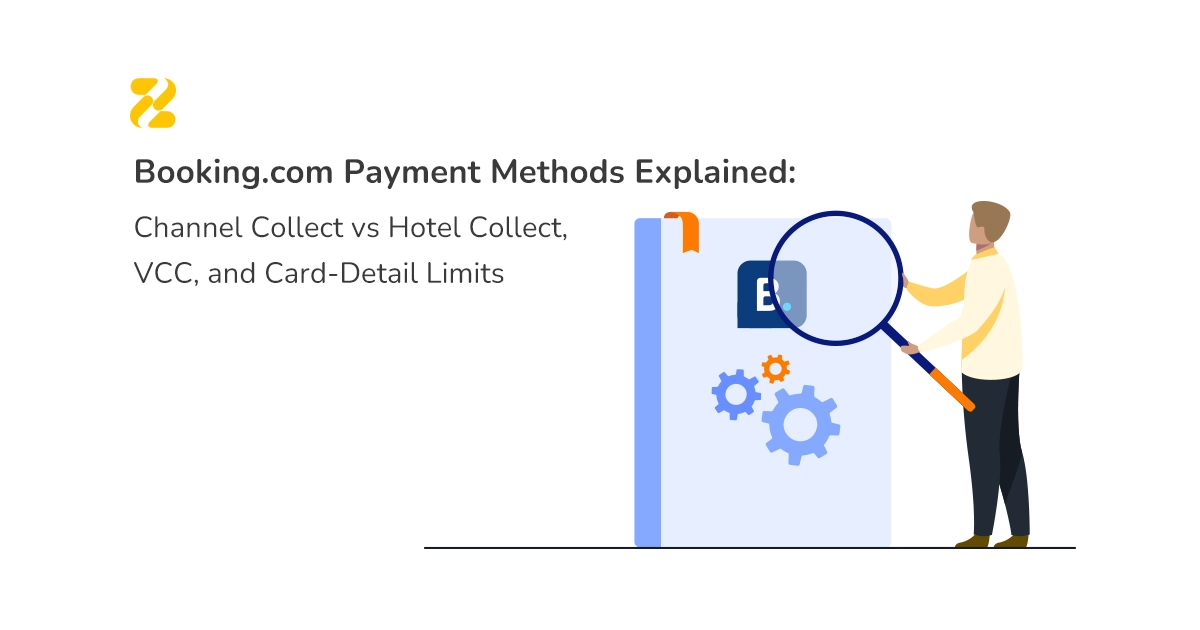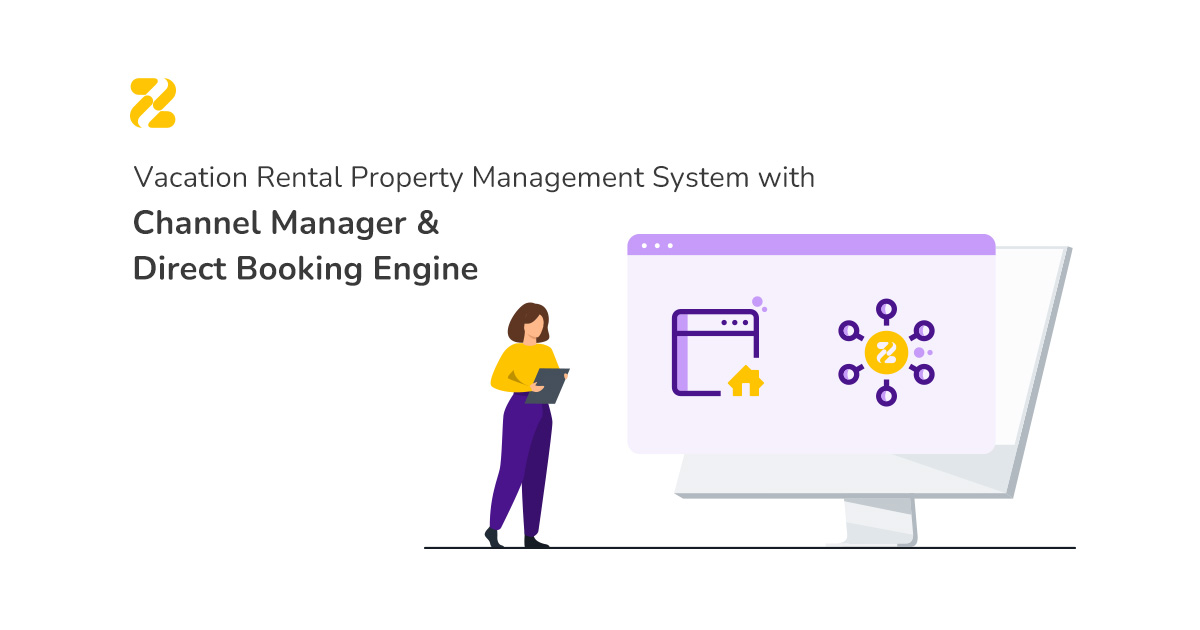OTAs (Online Travel Agencies) and listing sites play an increasingly important role in the vacation rental and serviced apartment industry. They give property managers and operators an opportunity to expose their listings to a wide range of potential guests. However, hospitality accommodation providers should not just rely on these commission-based booking websites. They must either learn how to build a vacation rental website themselves or hire someone to do it for them. This direct booking website will serve as a crucial channel to increase bookings and generate more revenue to grow their business.
Table of Contents
Why Do You Need to Build Your Own Vacation Rental Website?
1. Increase Your Brand Credibility
Booking platforms, for sure, provide you with significant exposure, but you can’t keep relying on these third-party websites forever. You have to decrease your dependency on OTAs, build your business identity, and highlight your listings under a unique brand.
2. Control How Your Rental Property Is Described and Displayed
Showcase your vacation rental in more detail and give your brand the design it deserves. Build a vacation rental website that displays all of your property’s unique features. Personalise your website to handle your specific business needs. You also need some space for marketing, content creation, and sharing information about the area and local recommendations and events.
3. Enhance Your Profit Margins
By driving in more direct bookings and decreasing the money leaking as OTAs’ commissions, you can boost your profit margins with your own vacation rental website.
4. Communicate Directly with Guests
Accept bookings right through your website and provide a better guest experience for your renters. Entice travellers to book your rental for their next vacation. This way, you can also collect your guests’ real email addresses and contact info for future marketing. This is exactly what OTAs and property listing sites, such as Airbnb, Booking.com, and Expedia deprive you of.
How to Build a Vacation Rental Website
As a vacation rental owner or manager, you might consider website creation a daunting task. You might not be very tech-friendly, have the required technical skills or simply sufficient time. Fortunately, there are tons of tools out there to help busy short-term rental managers to get their websites up and running with the help of excellent and inexpensive options. As a vacation rental manager, you have two ways to build your vacation rental website. You can either build your website from scratch or employ a vacation rental website builder.
1. Build Your Website from Scratch
WordPress is a popular open-source “Content Management System” (CMS) that can be used to create a self-hosted website. This can be done by either using the free WordPress platform or building a self-hosted WordPress website. If you want a unique custom website with more complex elements, you should create your site through a specialised platform. You might need to pay a web designer or an agency to create a well-designed vacation rental website for you that can stand out in the competition.
2. Use a Vacation Rental Website Builder
A vacation rental website builder is a tool designed for property managers to simplify the process of creating a website. These websites provide pre-built, easy-to-use, and customisable website templates and tools. Therefore, working with them is fairly easy and no technical knowledge of web design is required. There are several website builders offering a range of designer-made themes to choose from. But, you should see if you can find one that is vacation rental specific.
How to Choose Your Vacation Rental Website Builder
When choosing a website builder for your vacation rental, it’s vital to pick the best platform that suits your business needs. Use our checklist to ensure the platform you choose has the necessary features and services.
When choosing a website builder for your vacation rental, make sure that the website is:
1. User-Friendly
Before choosing a website builder, it is important to compare your available options in terms of ease of use. One key factor to look for is a drag-and-drop website builder that requires no coding experience or technical knowledge. Plus, make sure that the platform has a responsive and dedicated support team.
2. Mobile-Friendly
Nowadays, a great deal of the Internet traffic is from mobile devices. Thus, a responsive, mobile-friendly website is essential to the success of your online performance.
3. Cost-Effective
Find the most cost-effective, professionally-designed website which is commission-free and optimised for converting lookers into bookers.
12 Must-Have Tools and Features for Every Vacation Rental Website Builder
1. Booking Engine
It’s imperative for any professional vacation rental website builder to have a booking system with an integrated booking calendar. Having an integrated booking engine with live updates is a valuable asset for vacation rental websites. This allows potential guests to check rates and availability in real-time and book their stay immediately, reducing the risk of overbooking.
2. Channel Manager
In addition to featuring a robust booking engine, your vacation rental website builder must be able to sync your calendars with major booking channels like Airbnb, Booking.com, HomeAway, and Vrbo and remove the possibility of double bookings.
3. SEO Optimisation Tools
Many of your potential guests use search engines such as Google, Yahoo, and Bing to look for trip destinations. Therefore, you must be aware of the undeniable value of increasing your search engine rankings. To increase your website visibility, you should choose a vacation rental website builder that offers SEO (Search Engine Optimisation) tools. These tools can help your site to hold one of the top ranks in search results.
4. Themes and Templates Diversity
First impressions are the most lasting! Your website builder must offer various attractive, designer-made themes and templates to give your vacation rental website a stunning design. You should also be able to customise templates and change colour schemes, background images, fonts, text styles, and layouts of your website via the editor.
5. Photo Gallery and Video Embeds
You must be able to showcase your vacation rental’s features with high-quality photos and videos to make an appealing website. Your website must display addresses on maps to show the exact location of your vacation rental and available local sites.
6. Dynamic Pricing Integrations
Dynamic Pricing solutions can help you come up with the most appropriate pricing by analysing real-time web data. A dynamic-pricing-integrated vacation rental website builder ensures that prices are optimised in response to changes in demand and market shifts.
7. Secure Payment Gateway Integration
Your guests must be able to book your property directly via secure online payment gateways using debit or credit cards. By providing secure payment options, you can build trust with your guests and make a seamless booking experience for them.
8. Guestbook
Your website builder must offer your guests a guestbook which is a space for guest greetings, comments, or rates. This way, you can get in touch with guests, respond directly to reviews, and build strong relationships with no hassle.
9. Guest CRM, Data Storage, and Privacy
A good rental website provides you with your guests’ real contact information. Your website must automate the collection of guests’ email addresses after they place a booking and enable you to ask your guests’ permission for using their contact information for future marketing and follow-up purposes. And the process must be GDPR-compliant.
10. Blogging Tools
When selecting a vacation rental website builder, consider the tools and features available for your blog. Look for features that allow you to categorise posts, manage comments, and connect your blog to your social media accounts.
11. Social Media Integrations
It should also be possible to add social media buttons to your website pages to link your social media accounts. This is especially important since social media is a great way to engage with your guests and receive feedback. With social media buttons on your website, you can make it easy for visitors to find and follow your profiles, which can help you build brand recognition and grow your following.
12. Website Reports and Analytics
Opt for vacation rental website builders which can integrate with third-party services like Google Analytics. This tool helps you analyse your website activities, view your website statistics reports, and track your visitors.
Final Advice
Use Free Trials
If possible, try a vacation rental website builder before buying it and see if it has the features you need. Many Property Management Systems (PMSes) offer vacation rental website builders. The point is to choose the one best equipped with all the tools and functionalities to get more direct bookings.
Don’t Put Ads on Your Website
Some website builders offer free hosting in return for ads on your site. It’s wise just to pay for the website builder rather than placing ads on your website. Ads will slow down your website. And most of the time, you do not have control over them and the products or services they advertise. As a result, you will lose your viewers or their trust.
Bear in mind that your website is your virtual window for people who are most likely to book your rental. Make sure that the vacation rental website you create provides enough attraction and incentives. Make it easier for visitors to return to you by creating well-designed pages that include detailed information about your property.
Boost your direct bookings with Zeevou’s SEO-friendly, direct booking website integrated with top analytic tools.




